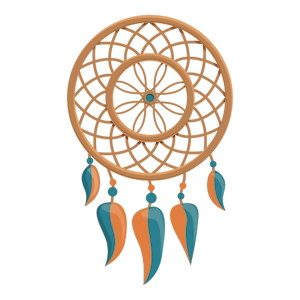What Does It Mean to Dream of Description ?
Posted on: November 3, 2024
Last updated: February 19, 2025
The element in the dream symbolizes a complex interplay of emotions, cultural influences, and personal experiences. It serves as a reflection of the dreamer’s subconscious, revealing insights into their inner world and guiding them towards self-awareness.

What does Description mean in a dream?
In the realm of dreams, the symbolism of a particular element can evoke a myriad of interpretations, each intricately woven into the fabric of our subconscious. Dreams often serve as a mirror, reflecting our innermost thoughts, fears, and desires. The dream book provides a comprehensive guide to deciphering these symbols, offering insights that can illuminate the path to self-discovery. Understanding the significance of this element requires delving into its various connotations, which can range from personal experiences to universal archetypes.
One must consider the emotional context surrounding the dream. Is the element associated with positive feelings or negative ones? This emotional backdrop plays a crucial role in shaping the overall interpretation. For instance, encountering a serene landscape may symbolize peace and tranquility, while a chaotic scene could reflect inner turmoil. The nuances of these emotions can be further explored through the lens of the dream book, which categorizes symbols based on their emotional resonance.
Moreover, the cultural context cannot be overlooked. Different cultures attribute distinct meanings to various symbols, which can significantly influence their interpretation. A symbol that signifies wealth in one culture may represent greed in another. Thus, understanding the cultural backdrop of the dreamer is essential for a holistic interpretation. This multifaceted approach allows dreamers to glean deeper insights into their subconscious, making the dream book an invaluable resource.
Finally, the personal significance of the element must be acknowledged. Each individual brings their unique experiences and memories to their dreams, which can alter the meaning of a symbol entirely. For instance, a childhood toy may evoke nostalgia and comfort for one person, while it may represent loss for another. By examining these personal connections, dreamers can uncover layers of meaning that resonate deeply within them. Ultimately, the journey of interpreting dreams is a deeply personal one, guided by the wisdom found within the dream book.
Meaning in dream books
Common Psychoanalytic Interpretations
Repressed Emotions: This element may symbolize repressed feelings that need to be acknowledged. It suggests that there are emotions or thoughts you have been avoiding, and the dream is a way of bringing them to the surface for healing.
Desire for Control: The presence of this symbol can indicate a desire for control in your waking life. It reflects your subconscious need to regain power over situations that feel chaotic or unpredictable.
Conflict Resolution: This element may represent a conflict within yourself or with others. The dream serves as a platform for your mind to work through unresolved issues, encouraging you to seek harmony and understanding.
Common Esoteric Interpretations
Spiritual Awakening: The appearance of this element in your dream may signify a call to higher consciousness. It suggests that you are on the brink of a spiritual awakening, urging you to explore your inner self and connect with the universe.
Transformation and Change: This symbol often represents transformation in your life. It indicates that you are undergoing significant changes, shedding old layers to embrace new opportunities and growth.
Intuition and Inner Wisdom: Seeing this element can be a reminder to trust your intuition. It encourages you to listen to your inner voice and embrace the wisdom that comes from within, guiding you through life’s challenges.
Description in different cultural contexts in dreams
In the realm of dream interpretation, the significance of various symbols can vary greatly across different cultures. In Western culture, dreams are often seen as a reflection of one’s subconscious mind, revealing hidden desires or fears. The element in question, often interpreted through the lens of personal experience, resonates with the idea of self-discovery and introspection. This perspective aligns with the modern psychological approach, where dreams are considered a vital tool for understanding one’s emotional landscape. The societal emphasis on individualism further amplifies the importance of personal symbols in dreams, making them a unique tapestry of one’s life experiences.
In Slavic traditions, dreams hold a mystical quality, often viewed as a bridge between the physical and spiritual worlds. The element we are exploring may symbolize a connection to ancestral wisdom or a warning from the spirit realm. In this cultural context, dreams are not merely personal; they are collective, intertwined with folklore and the natural world. The Slavic belief in the power of dreams emphasizes their role in guiding decisions and foretelling future events, making them a vital aspect of cultural identity and continuity.
Eastern cultures, particularly in the realms of Buddhism and Taoism, perceive dreams as a manifestation of the mind’s illusions. The element in question may represent the transient nature of reality, urging the dreamer to seek enlightenment and inner peace. In this context, dreams serve as a reminder to detach from worldly desires and focus on spiritual growth. The symbolism associated with the element can also reflect the interconnectedness of all beings, highlighting the importance of harmony and balance in one’s life.
In Oriental traditions, dreams are often linked to the concept of fate and destiny. The element we are examining might symbolize a turning point or a significant life event that is preordained. This belief system encourages individuals to embrace their dreams as messages from the universe, guiding them toward their true path. The cultural emphasis on fate intertwines with the symbolism of the element, suggesting that dreams are not just personal reflections but also universal truths that resonate across time and space.
Description in other contexts of use
Dream Element: Description
In the realm of dreams, the element ‘Description’ can manifest in various intriguing contexts, each carrying its own unique symbolism. Dreaming of a vivid description may indicate clarity in your waking life, suggesting that you are gaining insight into a situation. Encountering a confusing description could symbolize uncertainty or lack of direction, urging you to seek clarity. If you dream of writing a description, it may reflect your desire to express yourself or document your experiences. A negative description in a dream might point to self-criticism or feelings of inadequacy, while a positive description could signify self-acceptance and confidence. Seeing a description in a book may suggest that you are seeking knowledge or guidance from past experiences. If the description is about a loved one, it might indicate your feelings towards that person or unresolved issues. A short description could symbolize a lack of depth in a situation, while a detailed description suggests thorough understanding and contemplation. Dreaming of a description being read aloud may indicate a desire for validation or attention. If you encounter a misleading description, it might warn you against deception in your life. A colorful description can represent vibrancy and positivity, while a bleak description may reflect feelings of despair or negativity. Dreaming of editing a description suggests a need for change or improvement in your life. If you see a description on a sign, it may symbolize guidance or direction you are seeking. A description of a place can indicate your feelings about that location, whether it’s comfort or discomfort. Encountering a description of an event might reflect your anticipation or anxiety about future occurrences. If the description involves animals, it could symbolize instincts or emotions related to those creatures. A description that feels familiar may suggest unresolved memories or nostalgia. Lastly, dreaming of a description in a dream journal could indicate a journey of self-discovery and reflection, urging you to explore your inner thoughts and feelings.


Comments posted under the entry: 0
The user must be logged in to comment or view comments.